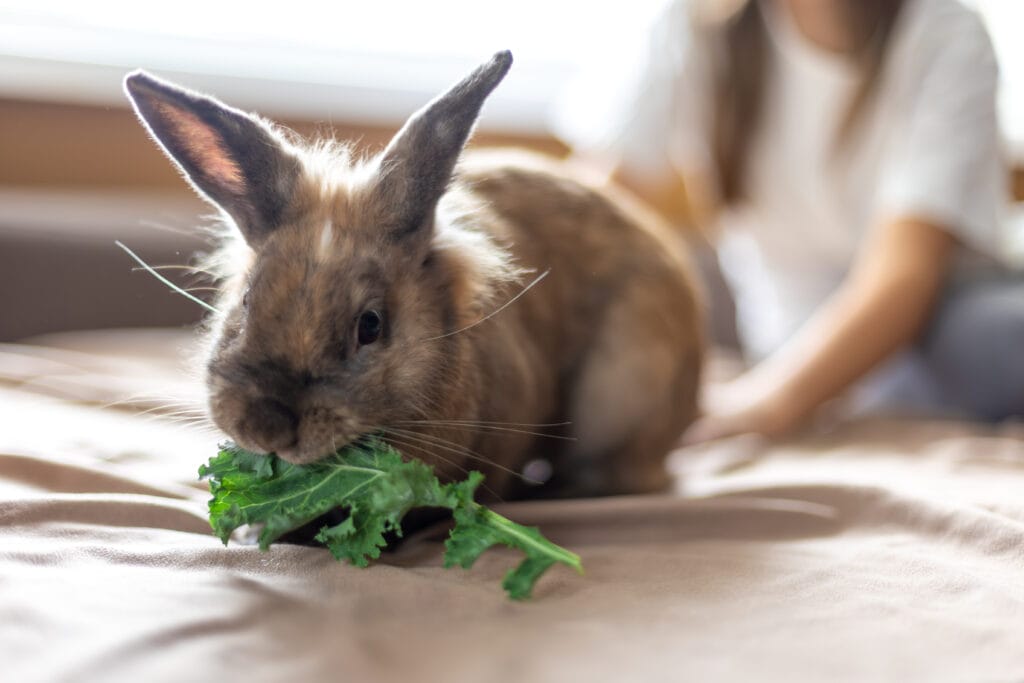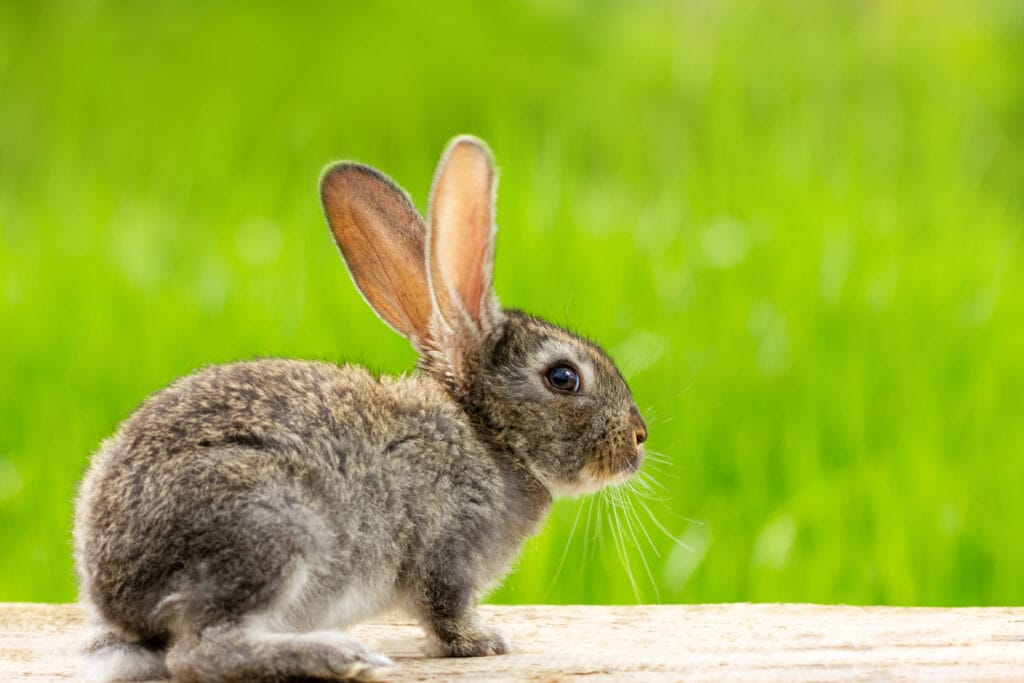As a rabbit owner, one of your top priorities is ensuring your pet eats the right foods to maintain good health. With so many vegetables, fruits, and greens to choose from, it can sometimes be tricky to know what’s safe for your bunny and what should be avoided. One food that might leave you wondering is bean sprouts. They’re often seen as a healthy, crunchy snack for humans, but can bunnies eat bean sprouts?
In this detailed guide, we’ll examine whether bean sprouts are safe for rabbits, how they can benefit your pet, and if any risks are involved. We’ll also discuss the appropriate portion sizes and explore other foods that can enhance your bunny’s diet.
By the end of this post, you’ll be fully equipped with the knowledge you need to make informed decisions about what to feed your bunny, keeping them happy and healthy.
Can Bunnies Eat Bean Sprouts?
Yes, bunnies can eat bean sprouts, but with caution. Bean sprouts are not toxic to rabbits and can be a healthy, crunchy treat in moderation. They are low in calories, high in fibre, and contain various nutrients like vitamin C, protein, and antioxidants. These can benefit your rabbit’s diet, especially if you’re looking for variety.
However, a few things to consider before adding bean sprouts to your bunny’s meals. While they are generally safe, too many bean sprouts can cause digestive upset in rabbits. The high water content and natural sugars in sprouts may lead to gas or bloating if overfed, which could affect your rabbit’s digestive health.
The Nutritional Benefits of Bean Sprouts for Rabbits
Here’s a breakdown of the key nutrients in bean sprouts and how they can benefit your bunny:
- High in Fiber:
- Fibre is essential for rabbits as it supports healthy digestion and helps keep their teeth trimmed. Bean sprouts offer a good source of fibre, which can contribute to your bunny’s daily fibre intake.
- Vitamin C:
- While rabbits can produce vitamin C, a little extra won’t hurt. Bean sprouts contain small amounts of this vital nutrient, which can help boost your bunny’s immune system.
- Antioxidants:
- Bean sprouts are rich in antioxidants, which help reduce inflammation and protect against cellular damage. These compounds can help keep your bunny’s organs and tissues healthy.
- Low in Calories:
- Bean sprouts are low in calories, making them an excellent option for a snack or treat without contributing to obesity.
Risks of Feeding Bean Sprouts to Rabbits
Although bean sprouts have some benefits, there are a few potential risks to consider when feeding them to your rabbit.
1. Digestive Issues
Rabbits have delicate digestive systems; introducing too many high-water-content foods like bean sprouts can cause issues. If overfed, your bunny might experience diarrhoea, bloating, or gas, which can be uncomfortable.
2. Oxalates in Bean Sprouts
Bean sprouts, like other vegetables, contain oxalates. These compounds can interfere with calcium absorption in the body, leading to the formation of kidney stones if consumed in large quantities. While oxalates are not usually a problem in small amounts, feeding bean sprouts in moderation is essential to avoid any long-term health issues.
3. Unripe or Raw Bean Sprouts
Bean sprouts are most commonly sold raw, and unripe sprouts can sometimes be harder to digest, potentially leading to gastrointestinal issues. To minimise this risk, it’s important to ensure the sprouts are properly prepared or bought fresh.

How to Safely Feed Bean Sprouts to Your Rabbit
If you decide to feed your bunny bean sprouts, it’s essential to do so safely and in moderation. Here are a few tips for introducing bean sprouts into your rabbit’s diet:
- Feed in Moderation:
- Offer small portions—start with a few sprouts and monitor your bunny’s response. A good rule of thumb is to offer no more than a small handful once or twice a week.
- Introduce Slowly:
- Whenever you introduce a new food, do so gradually. Slowly incorporate bean sprouts into your bunny’s diet, and watch for any signs of digestive upset, such as soft stools or discomfort.
- Wash Thoroughly:
- Always wash the bean sprouts thoroughly to remove pesticides, dirt, or bacteria. Organic sprouts are the safest option.
- Avoid Bean Sprout Seeds:
- Bean sprouts’ seeds, especially raw ones, can be difficult for rabbits to digest. Stick to the sprouted part of the bean, not the seeds themselves.
- Observe for Allergies:
- Every bunny is different. Watch for any signs of allergic reactions after offering bean sprouts, such as sneezing or skin irritation.
What Other Vegetables Can Bunnies Eat?
While bean sprouts can be a healthy addition to your bunny’s diet, plenty of other vegetables and greens are even more beneficial. Here’s a quick list of some of the best vegetables for rabbits:
1. Leafy Greens
- Romaine lettuce, kale, parsley, cilantro, and dandelion greens are all excellent sources of fibre, vitamins, and minerals for your rabbit.
2. Carrots
- Carrots are sweet and crunchy and rich in beta-carotene, which supports eye health. However, due to their sugar content, they should be fed in moderation.
3. Bell Peppers
- High in vitamin C, bell peppers are a nutritious addition to your bunny’s diet. Choose a variety of colours for extra nutritional benefits.
4. Broccoli
- This green vegetable is packed with vitamins and fibre, but it should be fed sparingly, as it can cause gas in some rabbits.
5. Zucchini and Cucumber
- These are low-calorie, high-water vegetables that can be refreshing for your bunny, especially during hot weather.
Conclusion: Can Bunnies Eat Bean Sprouts?
In conclusion, bunnies can eat bean sprouts, but they should be fed in moderation and with care. Bean sprouts offer several nutritional benefits, such as fibre, vitamin C, and antioxidants, but they also come with some risks, particularly when overfed. Always ensure the bean sprouts are fresh, clean, and appropriately prepared before offering them to your rabbit.
Remember, while bean sprouts can be a healthy treat, they should never replace your bunny’s primary diet of hay, leafy greens, and fresh water. By keeping variety in your rabbit’s diet and observing how they respond to new foods, you can ensure they get all the nutrients they need while avoiding digestive issues.
Best Rabbit Breeds in 2025 (Bonus)
Since we are discussing rabbits, the best rabbit breeds for 2025 are also worth considering. Here are the Top 10 Rabbit Breeds you might want to consider for your home:
- Holland Lop
- Mini Rex
- Netherland Dwarf
- Flemish Giant
- Lionhead Rabbit
- English Angora
- Dutch Rabbit
- Harlequin Rabbit
- Mini Lop
- American Fuzzy Lop
For More Details: The Best Rabbit Breeds in 2025: Top 10 Breeds You Need to Know
Each breed has unique characteristics, and knowing their specific needs can help you tailor your diet, toys, and care routine accordingly. Whether adopting a playful Mini Rex or a gentle Flemish Giant, ensuring your bunny’s happiness and health will always be your top priority.


